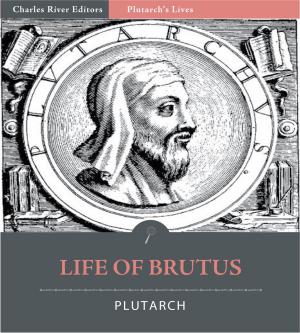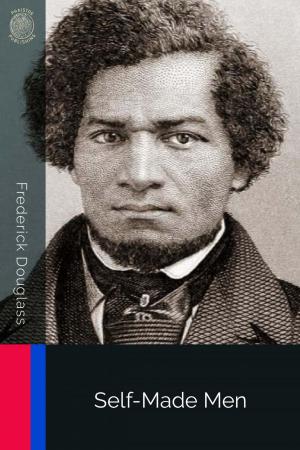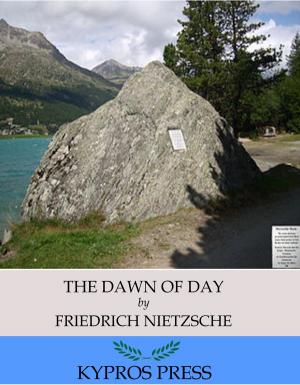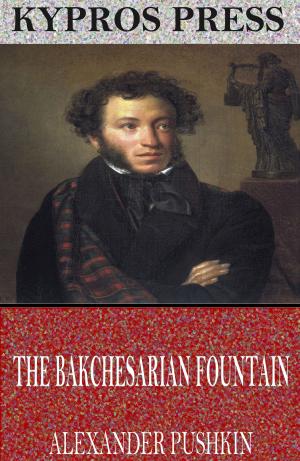The Conquerors of Europe: The Lives and Legacies of Julius Caesar and Napoleon Bonaparte
Nonfiction, History, Ancient History, Rome, France, European General| Author: | Charles River Editors | ISBN: | 9781475316346 |
| Publisher: | Charles River Editors | Publication: | August 24, 2012 |
| Imprint: | Language: | English |
| Author: | Charles River Editors |
| ISBN: | 9781475316346 |
| Publisher: | Charles River Editors |
| Publication: | August 24, 2012 |
| Imprint: | |
| Language: | English |
*Includes pictures of the two men and important people, places, and events in their lives.*Discusses and answers common myths and misconceptions about Caesar and Napoleon.*Includes a bibliography on Napoleon's life for further study.*Includes a Table of Contents.Over the last 2,500 years, many would-be kings and conquerors have marched armies across Europe in the hopes of establishing a dominant empire on the continent. But though many have tried, almost all of them have failed. The two greatest exceptions to that rule were Julius Caesar and Napoleon Bonaparte, and their accomplishments ensured that they will forever be enshrined among the ranks of history's greatest generals. Possibly the most important man of antiquity, and even all of history, was Julius Caesar. Alexander Hamilton, the famous American patriot, once remarked that the greatest man who ever lived was Julius Caesar. Such a tribute, coming from one of the Founding Fathers of the quintessential modern democracy in reference to a man who destroyed the Roman Republic, is testament to the enduring mark that Caesar left upon the world. The ultimate conqueror, statesman, dictator, visionary, and opportunist, during his time in power Caesar expanded the borders of Rome to almost twice their previous size, revolutionized the infrastructure of the Roman state, and destroyed the Roman Republic for good, leaving a line of emperors in its place. His legacy is so strong that his name has become, in many languages, synonymous with power: the Emperors of Austria and Germany bore the title Kaiser, and the Czars of Russia also owe the etymology of their title to Caesar. His name also crept further eastward out of Europe, even cropping up in Hindi and Urdu, where the term for Emperor is Kaisar. When historians are asked to list the most influential people of the last 200 years, a handful of names might vary, but there is no question that the list will include Napoleon Bonaparte (1769-1821), the most successful French leader since Charlemagne and widely acknowledged as one of the greatest generals ever. Indeed, in his quest to emulate Caesar, Napoleon was likely the most influential man of the 19th century, leaving an indelible mark on everything from the strategy and tactics of warfare to the Napoleonic Code that drafted laws across the continent. To defeat Napoleon, the Europeans had to form large coalitions multiple times, which helped bring about the entangling alliances that sparked World War I after Europe was rebuilt following Waterloo and the Congress of Vienna. Napoleons influence on the United States was also palpable. To finance his endeavors, he struck a deal with President Thomas Jefferson that became the Louisiana Purchase, and it was Napoleonic warfare that was used throughout the Civil War, leading to massive casualties because the weaponry of the 1860s was now more advanced than the tactics of 1815. When Napoleon died at St. Helena, he still engendered fear and distaste among the Europeans, but the man and his legacy continued to be held in awe across the world. In Napoleons time, emperors and leaders still hoped to become the next Julius Caesar. After the Napoleonic Era, emperors and generals hoped to become the next Napoleon. For the next century, military leaders and even civilians struck Napoleonic poses when having their pictures taken, and phrases like Napoleonic complex and meeting ones Waterloo are now common phrases in the English lexicon. It would be truly impossible to envision or understand geopolitics in the West over the last two centuries without Napoleon. Whether Napoleon eclipsed Caesar remains a subject of endless debate, but the two men will be forever linked. Along with pictures of the two men and important people, places and events in their lives, you will learn about Caesar and Napoleon like you never have before, in no time at all.
*Includes pictures of the two men and important people, places, and events in their lives.*Discusses and answers common myths and misconceptions about Caesar and Napoleon.*Includes a bibliography on Napoleon's life for further study.*Includes a Table of Contents.Over the last 2,500 years, many would-be kings and conquerors have marched armies across Europe in the hopes of establishing a dominant empire on the continent. But though many have tried, almost all of them have failed. The two greatest exceptions to that rule were Julius Caesar and Napoleon Bonaparte, and their accomplishments ensured that they will forever be enshrined among the ranks of history's greatest generals. Possibly the most important man of antiquity, and even all of history, was Julius Caesar. Alexander Hamilton, the famous American patriot, once remarked that the greatest man who ever lived was Julius Caesar. Such a tribute, coming from one of the Founding Fathers of the quintessential modern democracy in reference to a man who destroyed the Roman Republic, is testament to the enduring mark that Caesar left upon the world. The ultimate conqueror, statesman, dictator, visionary, and opportunist, during his time in power Caesar expanded the borders of Rome to almost twice their previous size, revolutionized the infrastructure of the Roman state, and destroyed the Roman Republic for good, leaving a line of emperors in its place. His legacy is so strong that his name has become, in many languages, synonymous with power: the Emperors of Austria and Germany bore the title Kaiser, and the Czars of Russia also owe the etymology of their title to Caesar. His name also crept further eastward out of Europe, even cropping up in Hindi and Urdu, where the term for Emperor is Kaisar. When historians are asked to list the most influential people of the last 200 years, a handful of names might vary, but there is no question that the list will include Napoleon Bonaparte (1769-1821), the most successful French leader since Charlemagne and widely acknowledged as one of the greatest generals ever. Indeed, in his quest to emulate Caesar, Napoleon was likely the most influential man of the 19th century, leaving an indelible mark on everything from the strategy and tactics of warfare to the Napoleonic Code that drafted laws across the continent. To defeat Napoleon, the Europeans had to form large coalitions multiple times, which helped bring about the entangling alliances that sparked World War I after Europe was rebuilt following Waterloo and the Congress of Vienna. Napoleons influence on the United States was also palpable. To finance his endeavors, he struck a deal with President Thomas Jefferson that became the Louisiana Purchase, and it was Napoleonic warfare that was used throughout the Civil War, leading to massive casualties because the weaponry of the 1860s was now more advanced than the tactics of 1815. When Napoleon died at St. Helena, he still engendered fear and distaste among the Europeans, but the man and his legacy continued to be held in awe across the world. In Napoleons time, emperors and leaders still hoped to become the next Julius Caesar. After the Napoleonic Era, emperors and generals hoped to become the next Napoleon. For the next century, military leaders and even civilians struck Napoleonic poses when having their pictures taken, and phrases like Napoleonic complex and meeting ones Waterloo are now common phrases in the English lexicon. It would be truly impossible to envision or understand geopolitics in the West over the last two centuries without Napoleon. Whether Napoleon eclipsed Caesar remains a subject of endless debate, but the two men will be forever linked. Along with pictures of the two men and important people, places and events in their lives, you will learn about Caesar and Napoleon like you never have before, in no time at all.















